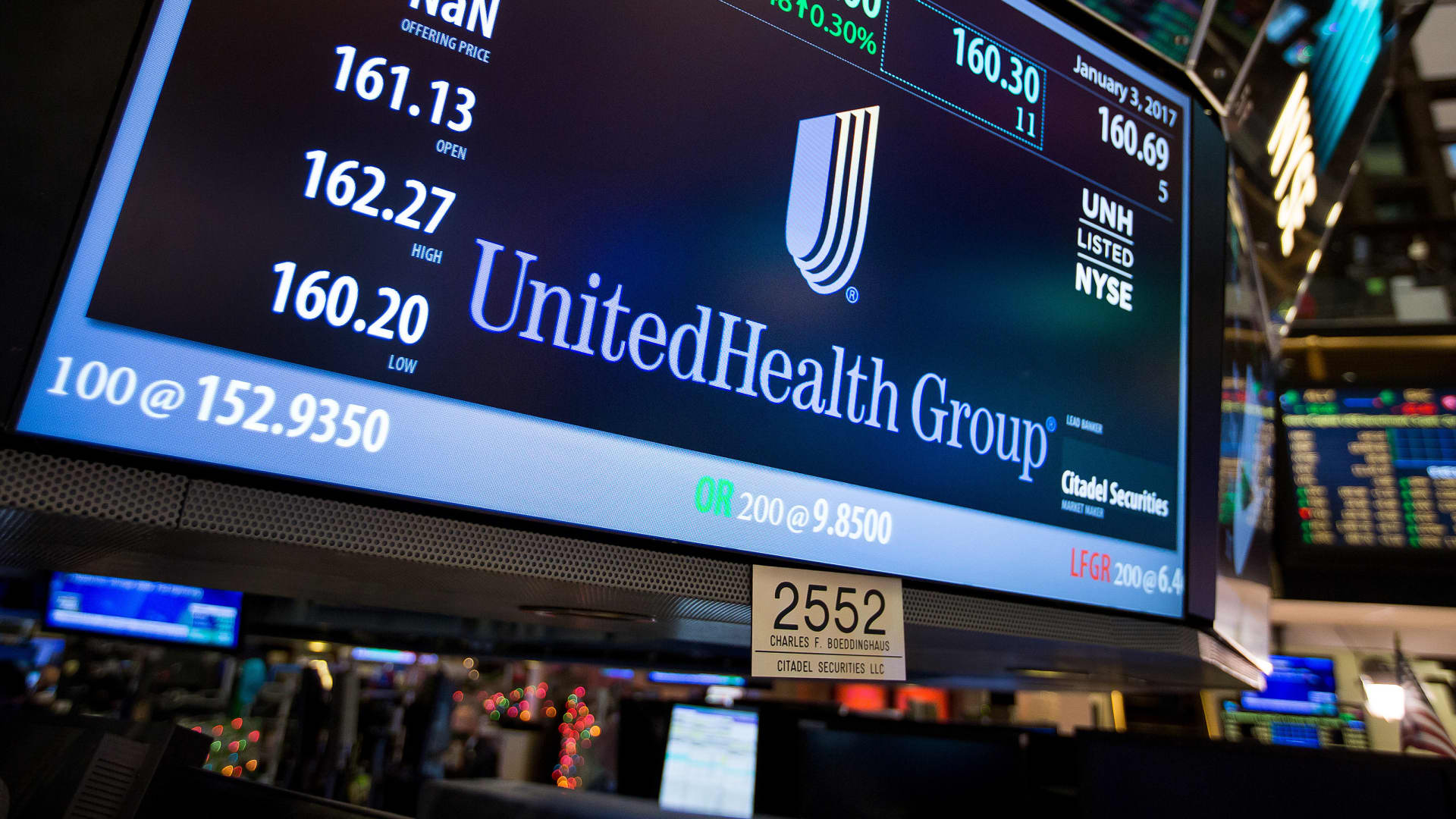UnitedHealth Group signage is displayed on a screen located at the New York Stock Exchange.
Michael Nagle | Bloomberg | Getty Images
Shares of major health care companies fell as much as 5% on Wednesday as investors feared pressure from lawmakers and patients would force them to change their business models.
Declining stocks include UnitedHealth Group, Cigna And CVS Healthwhich operate three of the nation’s largest private health insurers and drug supply chain intermediaries called pharmacy benefit managers, or PBMs. They also own pharmaceutical companies. Shares of all three companies closed down at least 5%.
Wednesday’s stock market reaction appears to be a response to new bipartisan legislation aimed at breaking up PBMs, first reported by the Wall Street Journal. PBMs have faced scrutiny from Congress and the Federal Trade Commission for years over allegations that they inflate drug costs for patients to increase profits.
The stock moves also come as insurance companies and their practices face increased public criticism following the fatal shooting of Brian Thompson, CEO of UnitedHealth Group’s insurance arm, last week. Health care stocks had already fallen in the days following Thompson’s murder.
A Senate bill, sponsored by Sens. Elizabeth Warren, D-Mass., and Josh Hawley, R-Mo., would require companies that own health insurers or PBMs to divest their pharmaceutical businesses within three years , the Journal reported. Lawmakers told the Journal that a companion bill is expected to be introduced in the House on Wednesday.
“PBMs have manipulated the market to enrich themselves by raising drug prices, defrauding employers, and driving small pharmacies out of business,” Warren said in a statement. “My new bipartisan bill will unravel these conflicts of interest by reining in these middlemen.”
The statement added that health care companies owning both PBMs and pharmacies constitutes a “blatant conflict of interest that allows these companies to enrich themselves at the expense of patients and independent pharmacies.”
The largest PBMs – UnitedHealth Group’s Optum Rx, CVS Health’s Caremark and Cigna’s Express Scripts – are all owned or linked to health insurers. They collectively administer about 80% of the nation’s prescriptions, according to the FTC.
PBMs sit at the center of the U.S. drug supply chain, negotiating discounts with drug manufacturers on behalf of insurers, large employers, and federal health plans. They also create lists of medications, or formularies, covered by insurance and reimburse pharmacies for prescriptions.
The FTC has been investigating PBMs since 2022.
— CNBC’s Bertha Coombs contributed to this report.
cnbc-health care

